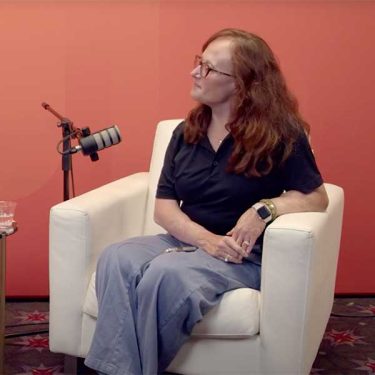Students of all ages are returning to school, so we need to ensure they have what they need to thrive.
Young people are doing better, according to the results from the 2024 National Survey on Drug Use and Health, the federal government’s annual look at mental health and substance use across the country. It showed that depression and suicidal thoughts and behaviors in teens have declined:
- The prevalence of serious suicidal thoughts in 12- to 17-year-olds fell from nearly 13% in 2021 to 10% in 2024.
- The prevalence of teen suicide attempts also dropped during the same period, from 3.6% to 2.7%.
But our work isn’t done. For instance, 2.2 million adults and 700,000 adolescents attempted suicide in the past year. And only about 60% of teens with a recent episode of depression got treatment.
One way to help people of all ages is through the federal Mental Health Awareness Training (MHAT) program, and we’re working hard to ensure it will receive funding in the fiscal year ahead.
The MHAT program is one of our key appropriations priorities because MHAT grants allow communities to provide training like Mental Health First Aid (MHFA) to youth, adults, first responders, people in rural communities and veterans and their families.
MHFA is an evidence-based, early intervention program that teaches us to make every conversation matter. It provides people with the skills to recognize the signs and symptoms of mental health and substance use challenges. Not only can the training increase confidence and the likelihood of helping an individual in distress, but it can also help identify colleagues in a work setting who may themselves need support.
For example, hundreds of employers offer Mental Health First Aid at Work, and organizations that support first responders have voiced their support for MHFA, including the International Association of Chiefs of Police, the Major Cities Chiefs Association and the International Association of Fire Chiefs.
Even Dr. Mehmet Oz endorsed MHFA after he was trained in the program.
“Just like using CPR, it teaches you to recognize if someone needs help and gives you some tools to use in the moment,” said Dr. Oz, the administrator of the Centers for Medicare and Medicaid Services. “The National Council … is determined to make Mental Health First Aid as common as CPR, and for that to happen we need to make sure every American is trained.”
Given the value of MHFA, we’re continuing to elevate its importance and are working with Congress to help make sure MHAT grants are funded in FY26. You can help us do that. Let your voice be heard by using our appropriations action alert and urging members of Congress to secure funding for MHAT grants.
Continued funding for MHAT will help people by teaching them the skills to provide the first level of support to an individual in need. It will help ensure that first responders are prepared to support individuals in a crisis.
More than 4.5 million people from all 50 states and U.S. territories have received MHFA training, and MHFA has come a long way since we brought it to the U.S. in 2008 – and last week we observed the first ever MHFA Day! MHAT grants will help us increase that number and help us ensure more people have the skills they need to help someone in need.
So, as students go back to school, let’s not forget that we should never stop learning, and MHFA is a course we can take at any age.




